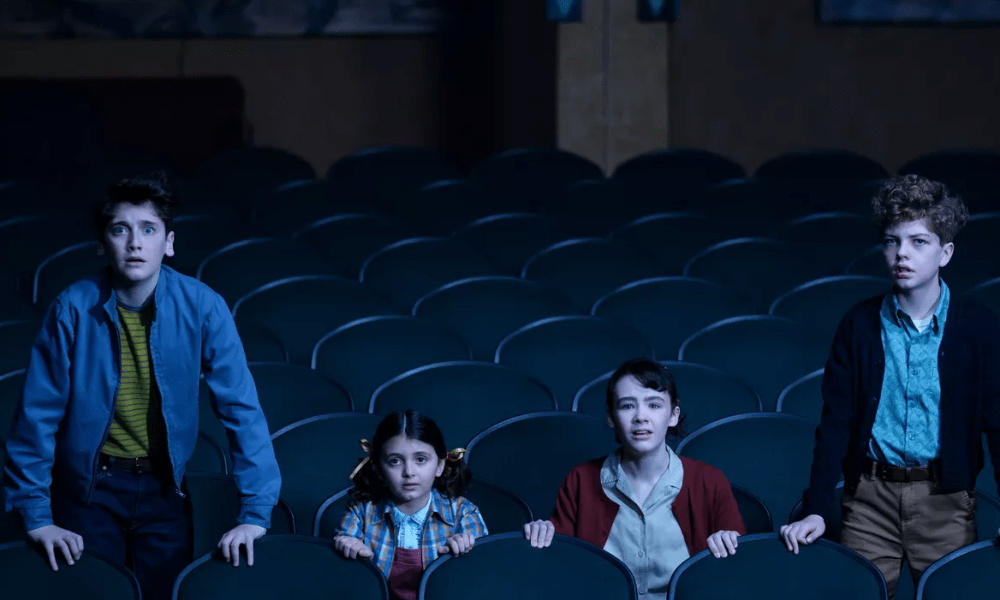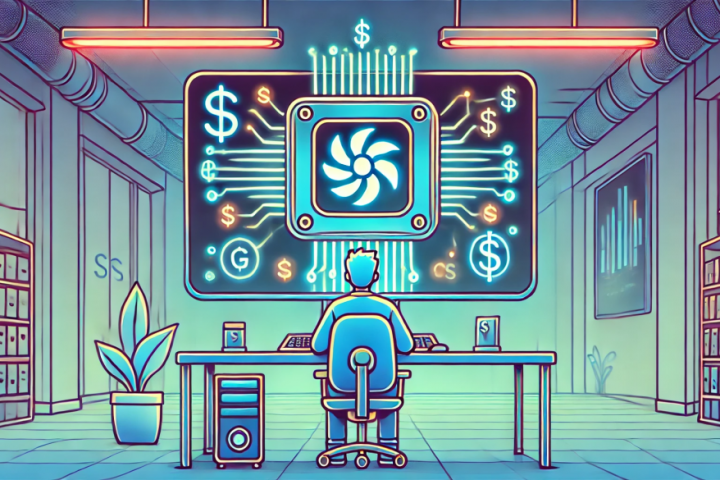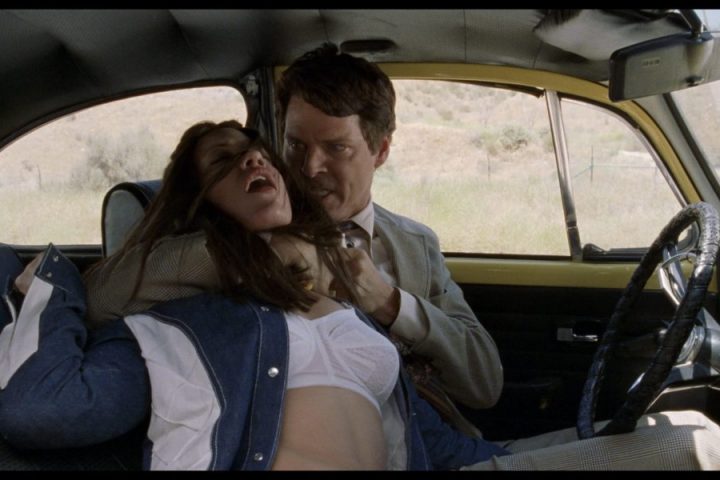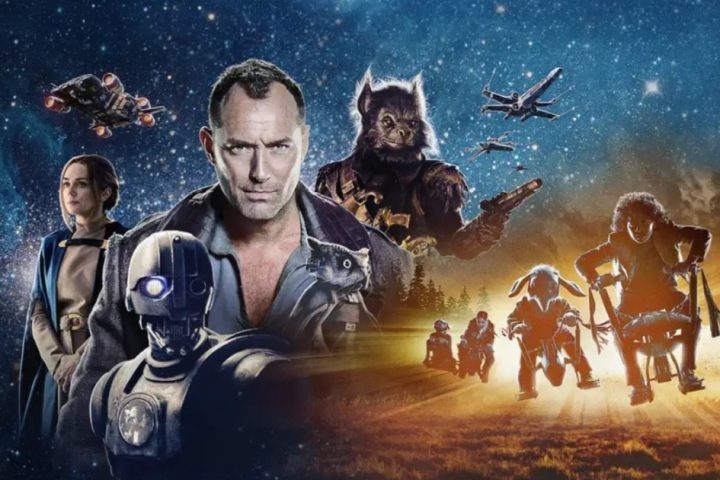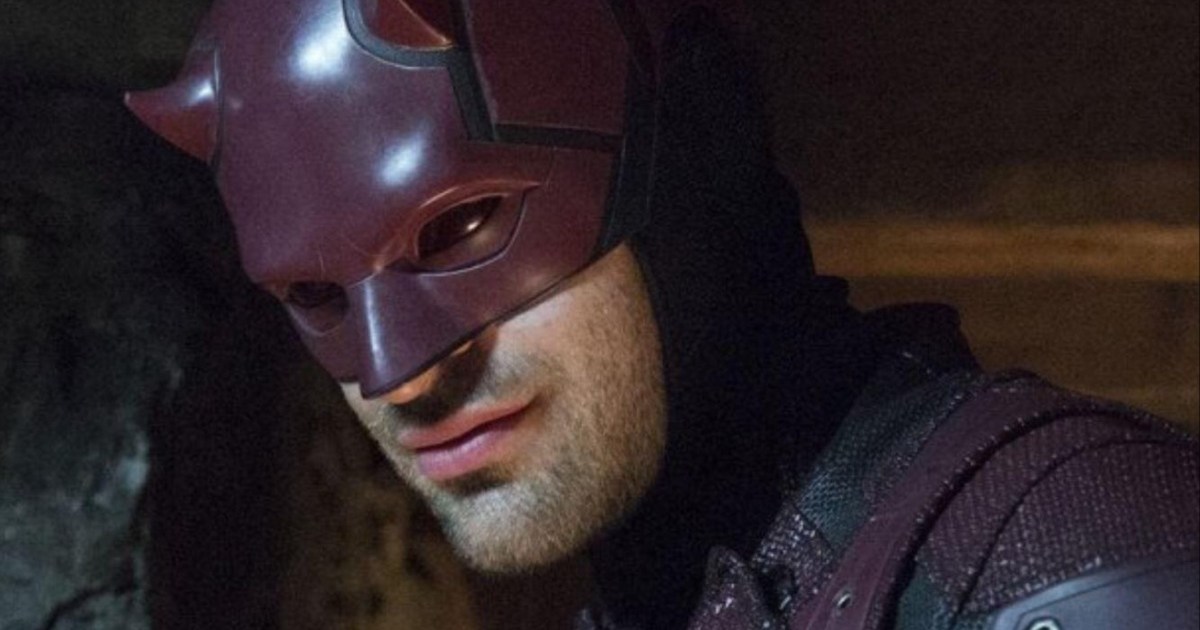Ryan Murphy, Jon Robin Baitz, and Joe Baken’s Grotesquerie unveiled itself in a seemingly ordinary manner, yet it was evident that a tangible darkness was simmering beneath the surface of its characters and setting, akin to a yawning abyss leading to Hell that could engulf the world at any moment. The series has consistently underscored the dominance of order over chaos – especially through the metaphor of jigsaw puzzles – from the very first episode of Grotesquerie. Lois Tryon (Niecy Nash-Betts) and her family innocently engage in puzzle-solving throughout the season, while she concurrently attempts to unravel the enigma of a larger serial killer mystery. Grotesquerie deserves credit for consistently keeping its audience on their toes, wondering how all these pieces could possibly come together to form the final picture. Grotesquerie has certainly not been short on ambition, with a season filled with Hannibal-like murder scenes and freakouts reminiscent of Isabelle Adjani’s memorable scene from Possession. At one point, Lois offhandedly comments that “the last piece is never as fun as the first,” in reference to her jigsaw puzzles. Grotesquerie’s finale poses the question, “does it even matter if the puzzle has kept you engrossed for several hours?”
Grotesquerie has taken us on a wild ride, with much of the series feeling like Niecy Nash-Betts channeling her inner Dale Cooper, which works to varying degrees of success. Each episode has tantalized us with increasingly intense material, with the fifth episode even featuring a 15-minute unbroken tracking shot that exemplifies dynamic filmmaking. It’s a standout segment and one of the most impressive sequences to come out of any of Ryan Murphy’s FX productions. Grotesquerie consistently showcases visual creativity throughout all ten episodes, but it’s a shame that the entire season doesn’t maintain this level of ambition.
Grotesquerie has maintained a surprisingly steady pace. Some episodes are a brisk 30 minutes, while others run close to an hour. It’s refreshing that Grotesquerie doesn’t feel the need to unnecessarily pad out its episodes with filler, allowing them to run shorter if they have less to convey. A tighter, focused narrative is always preferable to one that meanders and overstays its welcome. That being said, the series’ seventh episode features one of the most audacious twists in a Ryan Murphy production, a twist that the final three episodes – including the finale – continue to grapple with and try to reconcile. Grotesquerie revealed that the first seven episodes were all a product of Lois’ liminal state coma fantasy as her brain attempts to restore order and solve problems. In reality, Lois is the source of the chaos and destruction that surrounds her. Despite her liminal state being filled with Biblical references, Lois is unable to find forgiveness and grace after acknowledging her faults and attempting to atone.
Grotesquerie’s “dream specialist,” Dr. Witticomb (Santino Fontana), provides a plausible explanation for why Lois’ coma dream has been so dark and why the characters around her have been reimagined in such drastically different roles. Lois’ proximity to heinous serial killers has led her mental health down a destructive path, albeit one where she still retains some control. This material has certainly been intriguing, akin to something like Lost Highway, though not as accomplished, layered, or profound. It ends up feeling more like The Wizard of Oz than anything from Lynch’s repertoire.
Grotesquerie has cleverly explored how reality mirrors Lois’ liminal state visions and whether there is even a hint of clairvoyance as Lois’ subconscious grapples with logic. The clairvoyance angle is further developed as Lois’ dreams seem to become reality and Grotesquerie hints at whether history is destined to repeat itself, or if a more rational explanation is at play, such as someone reading her files and using them for their own nefarious purposes. The final episodes continue to reinvent themselves and play with the audience’s perception of what this series truly is and what it aims to achieve. This reaches a crescendo in the finale.
“You can’t just erase people who make mistakes” is a recurring theme in the finale, yet Lois has done exactly this, metaphorically speaking, with how her liminal space coma dream has transformed people into contrasting versions of themselves. It may not be erasure per se, but it’s not far off. Grotesquerie’s finale focuses almost entirely on Courtney B. Vance’s Marshall, who delivers a powerful and captivating performance, even if his spotlight in this episode feels slightly misplaced. Marshall gets entangled in a Me Too-like scandal that seemingly comes out of nowhere and is the first sign that Lois may actually be directing “reality” and playing the role of creator. Ed (Travis Kelce) takes Marshall to the Mexicali Men’s Club where they debate the importance of gender pronouns and the evolving role of men in society as increasingly persecuted individuals. This becomes a larger sermon on how men are presumed to be predatory and dangerous, regardless of their actions in life. This becomes the episode’s longest sequence, spanning two separate acts, which feels excessive in a show that’s ostensibly about a serial killer, religion, and chaos.
The most intriguing aspect of Grotesquerie’s finale is Lois’ growing suspicion that everything that’s happened after episode seven is actually a deeper layer of her liminal space and that she hasn’t truly awakened from her coma, but is instead trapped in a sort of “otherworld” purgatory. It’s a compelling theory that aligns with Grotesquerie’s themes and could potentially be true. That being said, this finale could still reiterate the same mission statement in a simpler manner that’s not mired in gender manifestos. It’s not necessary for Grotesquerie to endlessly circle the drain before it finally follows through on Lois’ chilling hypotheses. What’s more frustrating is that the finale reaches a rather abrupt end once it finally starts to explore some satisfying ideas that hint at the series’ grander plan.
“The old ways don’t work. There must be new paradigms,” is a sentiment Marshall shares with Lois early on in the finale. Grotesquerie embraces this philosophy and the episode leaves audiences with more questions than answers. Lois appears ready to place the last piece of this puzzle and apprehend a serial killer, for real this time, but Grotesquerie leaves its audience in suspense, saving any sense of catharsis or resolution for a second season. It’s a bold move that confirms the series will be a multi-season serialized narrative, rather than an anthology or a one-off miniseries. This approach certainly reinforces Marshall’s speech to Lois. While this may be exciting in theory, it doesn’t change the fact that this finale doesn’t showcase Grotesquerie’s best material. It’s a meandering mess that feels like a fever dream for most of its runtime, which may be intentional, but it’s not exactly satisfying. It’s akin to Lois pouring out a whole new box of puzzle pieces just when audiences expect her to place the final piece.
Grotesquerie cautioned audiences that “the last piece is never as fun as the first.” Not only does this finale validate this statement, but it attempts to completely bypass the statement by ensuring that the audience never reaches the final piece…and perhaps never will.
See you in season two?
Episode Score:
Season Score:

